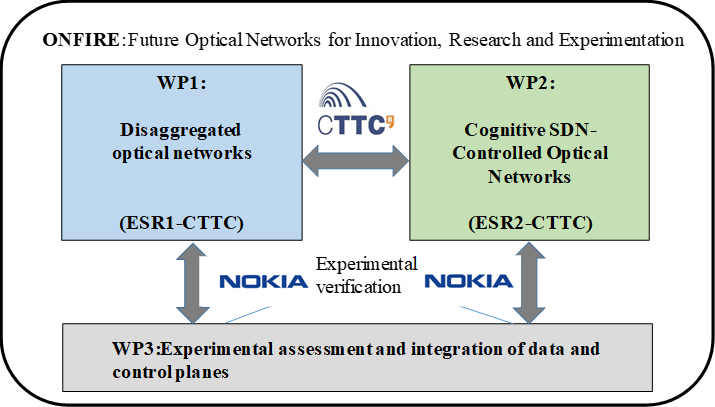Description:
Efficiency and cost-effectiveness of the future transport networks will play a key role in enabling the digital equality. Prices for ICT equipment and connection time are required to decrease. Otherwise, cost will remain a significant barrier to attain the aforementioned equality, since digital exclusion affects some of the most vulnerable and disadvantaged groups in society. Proactive and reactive automation of optical networks with white box switches, computing and storage, is arguably the most significant challenge that needs to be addressed in order to further increase efficiency and cost-effectiveness. White boxes refer to the use of generic, off the shelf hardware (bare metal) which can be purchased from any vendor as a commodity part and customized with software from a different source. White boxes raise in contrast to traditional proprietary vendor equipment (black boxes) based on pre-integrated hardware and software solutions tightly integrated or bundled by a single supplier. On the other hand, proactive and reactive automation is based on actively processing real-time network monitoring information and learning from the effects of the decisions taken to validate and provide optimal selection of network resources to satisfy new service demands and dynamically re-optimize existing service demands.
The ONFIRE project addresses these challenges via two research themes to take advantage of flexibility and modularity in the hardware and software domains, i) Disaggregated optical networks and ii) Cognitive optical networks. This combination aims at bringing a reduction in capital expense (CAPEX) through the use of open source software running on inexpensive commodity hardware, as well as in operational expenses (OPEX) through the automation of the network without requiring human intervention.
R&D objectives
leverage on the flexibility and modularity, exploiting both software-defined networking (SDN) and network functions virtualisation (NFV) concept.
- leverage on the flexibility from elastic interfaces and programmable white boxes.
- develop cost-effective subsystems for non-intrusive in-band monitoring of advanced modulation formats.
- use data mining techniques to leverage massive monitoring data from the physical layer.
Methodology and approach
To address the R&D objectives, ONFIRE follows a scheme of tight academic/industrial cooperation in the framework of the ESRs’ doctoral training. As a result, in addition to R&D, ONFIRE contributes to the development of researchers’ competitiveness by providing them with inter-sector expertise. Methodologically, the project effort is organised in five work packages (WPs). The first three WPs focus on the R&D objectives and are detailed below. The last two WPs comprise Project Management and Training, Dissemination, Exploitation, as well as Outreach activities.
|
WP No. |
WP Title |
Start Month |
End Month |
Activity Type |
Lead Beneficiary Short Name |
ESR involvement |
|
1 |
Disaggregated optical networks |
M7 |
M42 |
R&D |
CTTC |
ESR1 |
|
2 |
Cognitive SDN-Controlled Optical Networks |
M7 |
M42 |
R&D |
CTTC |
ESR2 |
|
3 |
Experimental assessment and integration of data and control planes |
M15 |
M42 |
R&D |
ALUD |
All |
|
4 |
Project Management & Doctoral Training |
M1 |
M42 |
Management |
CTTC |
All |
|
5 |
Exploitation, Dissemination & Outreach |
M1 |
M42 |
Dissemination |
ALUD |
All |
Technical workpackages:

Impact
The key benefits to ESRs in developing their long-term research careers come from:
(i) the involvement of top-level researchers as supervisors
(ii) the tight inter-sectorial cooperation of academic and industrial partners in both fundamental as well as market-driven/applied research
(iii) the availability of a well-designed portfolio of courses, encompassing both technical and complementary skills
(iv) research experience and industrial know-how offered by ONFIRE in developing cutting-edge solutions in one of the most exciting areas in ICT
